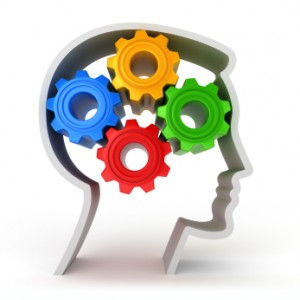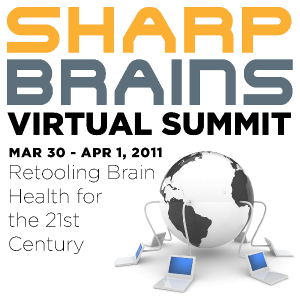Study: Cognitive Markers or Biomarkers to manage Cognitive Health across the Lifespan?
 Predicting Alzheimer’s Disease More Accurate Through Cognitive Changes Than Biomarkers (Medical News):
Predicting Alzheimer’s Disease More Accurate Through Cognitive Changes Than Biomarkers (Medical News):
- “Measuring people’s changes in cognitive abilities is a better predictor of Alzheimer’s disease than changes in biomarkers, researchers from the Benito Menni Complex Assistencial en Salut Mental, Barcelona, Spain, reported in Archives of General Psychiatry, a JAMA journal.”
- “The investigators used a range of tests to assess the participants’ cognition and how well they functioned. Cognition is the mental process of knowing, and includes perception, awareness, reasoning and judgment. They also took cerebrospinal fluid samples from them at the beginning of the study and every year for two years. Participants’ blood samples were also taken when the study began — this was tested for genes which are linked to Alzheimer’s disease. From MRI (magnetic resonance imaging) results included in the ADNI, they were able to gather data on the participants’ cortical thickness and brain volume.
- “They found that cortical thickness of the left middle temporal lobe of the brain, as well as two measures of delayed memory in those with MCI were linked to a higher likelihood of developing Alzheimer’s disease within 24 months.
- “Changes in functional activity (Editor’s Note: our emphasis to highlight the need to evaluate changes over time, not just one time activity) scores seemed to show a greater rate of decline in the participants than changes in biomarkers.”
This is consistent with one of the most insightful sessions held during the 2011 SharpBrains Summit, on The Role of Cognitive Health Monitoring Systems (requires registration to view): A missing piece in today’s brain health toolkit is the capability to monitor a person’s cognitive performance and Cognitive Reserve across the lifespan. Such a system could greatly facilitate the prevention, diagnosis and treatment of cognitive decline due to aging and disease. Policy, research and technology strands are converg ing to better define and meet this need: Which instruments, platforms and analytical approaches could provide the data and outcomes required? How will behavioral markers complement biological and neuroimaging markers? How may cognitive monitoring systems be developed, marketed and used?
ing to better define and meet this need: Which instruments, platforms and analytical approaches could provide the data and outcomes required? How will behavioral markers complement biological and neuroimaging markers? How may cognitive monitoring systems be developed, marketed and used?
- Dr. Yaakov Stern, Head Cognitive Neuroscience Division of the Taub Institute, Columbia University
- Dr. David Darby, Chief Medical Officer, CogState
- Dr. Jeffrey Kaye, Director, NIA — ORCATECH
- Moderated by: Dr. Joshua Steinerman, Assistant Professor, Albert Einstein College of Medicine
To learn more about the 2011 SharpBrains Summit (recordings are now available): click Here.



This is very fine blog. I got meaningful information from this study. Keep it up.
great website and useful info